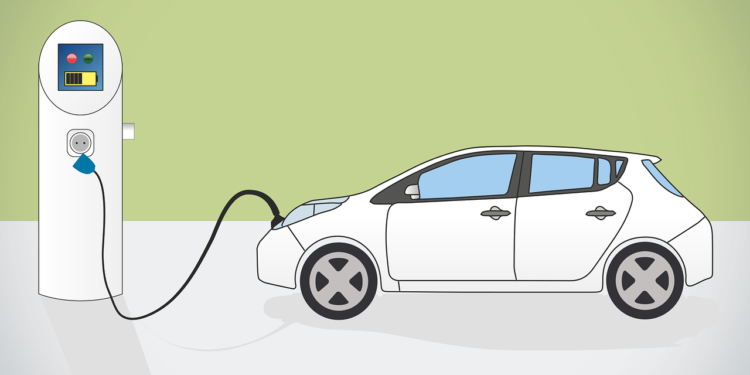You might wonder what happens to a car battery when it gets too hot. After all, it is an electric car. It should be designed with this in mind from the outset. The harsh conditions that EVs are expected to operate in must be taken into account when designing their batteries. The temperature of an EV battery can rise quickly once you start driving and accelerating at high speeds.
This is because your car’s engine compresses the air inside it, which produces a lot of heat as a result. Once the engine has stopped, however, that compressed air cools down very quickly. As a result, the outside of your car heats up much faster than its interior. Unfortunately, this rapid heating can lead to serious problems for an EV battery if precautions aren’t taken from the outset. So how do you prevent your batteries from getting too hot? Follow our guide to learn more about the risks posed by overheating and how to minimize them as much as possible:
What is an EV battery’s thermal limit?

Your battery’s thermal limit is the temperature at which it will experience a significant reduction in its capacity, typically to 20% of its maximum capacity. Once this happens, you’ll have to recharge it faster than normal, which means you might be spending more money in the long run. This is why it’s essential to learn how to prevent it from overheating. The good news is that there are a number of things you can do to prevent this from happening.
Let’s take a look at them now:
The elements that make up your battery react at different temperatures. Some are more reactive than others, and it is these that cause the most problems. Lithium is one of the most reactive elements in your battery. This means it heats up very quickly when exposed to air. In fact, lithium batteries are one of the few things that can get seriously hot enough to catch fire, which is why they pose a safety risk.
Heat is also a significant factor when it comes to most other components in your battery. This is because they are made of a soft metal, which degrades more easily when exposed to high temperatures.
How heat affects a car battery
Heat is a factor in almost every aspect of an EV battery’s operation. This is because it affects every component in the battery. The more energy you use your car, the more the engine causes it to heat up. This is why you need to keep your car in a well-ventilated area while you’re not driving it. It’s also why you need to regularly let it cool down once you’re done driving. The best way to do this is by letting it fully discharge itself, which we’ll discuss in a bit.
Ways to prevent your battery from overheating

There are a few things you can do to prevent your battery from overheating. Let’s take a closer look at how you can do this:
Maintain your car’s coolant temperature. Your EV’s coolant is a solution that lowers the temperature of your car’s engine and battery. Ideally, the coolant inside your car should be around 50oC. If it isn’t, take the car to a mechanic immediately. If it is, but you feel that the coolant is too cold, you can adjust it using an ice-coolant additive.
Keep your car in a well-ventilated area. When your car is in a well-ventilated area, it will cool down much faster than if it’s in a dark and warm place. This is because it allows the air inside it to flow freely, which greatly increases its cooling effect.
Fully discharge your car’s battery. This is perhaps the most important thing you can do to prevent it from overheating. Batteries heat up when they are charging, but the rate at which they do so is much higher when they’re fully charged.
This is because the battery has to power the car’s electrical system. What you can do is fully discharge it at least once a month. EV owners often recommend letting their batteries fully discharge once every two months.
How you can detect when your battery gets too hot
There are a number of ways you can tell when your battery is getting too hot. Let’s take a look at some of them:
Replace your battery every one to two years. How will you know when it needs replacing? The best way to find this out is to monitor your car’s charging duration. When you first charge your battery, it should take just a couple of hours to fully recharge it. If it takes longer, it probably isn’t performing as well as it should. This is because your car might be using a lot more energy than it needs to right now.
Set up your car for charging. Some electric cars allow you to set them up for a specific type of charging. This could be a routine that you follow every week or month when the car is fully discharged. By doing so, you ensure your car is getting charged at the correct rate.
How to prevent your battery from overheating

There are a few things you can do to prevent your battery from overheating, including: – Keep your car’s battery cool. It is much more vulnerable to heat if it’s too hot. This is why it’s important to keep it as cool as possible when not in use.
Maintain your car’s coolant. Your coolant functions as a coolant for your battery. If it’s lower than 50oC, it will heat up much more. This can cause it to get very hot. Keeping your battery fully charged will cause it to heat up a lot more. This is because it is being charged continuously. It’s best to let it discharge fully at least once a month.
Conclusion
If you want your car to last as long as possible, you need to take good care of it. Batteries are sensitive to heat, so if you don’t keep them cool, they can fail much sooner. In fact, they’re most likely to fail if they’re overheating. That’s why it’s important to prevent your battery from overheating. By doing so, you can extend its lifespan and keep it working properly for longer. There are a number of things you can do to prevent it from overheating, such as keeping it cool and letting it discharge fully.






